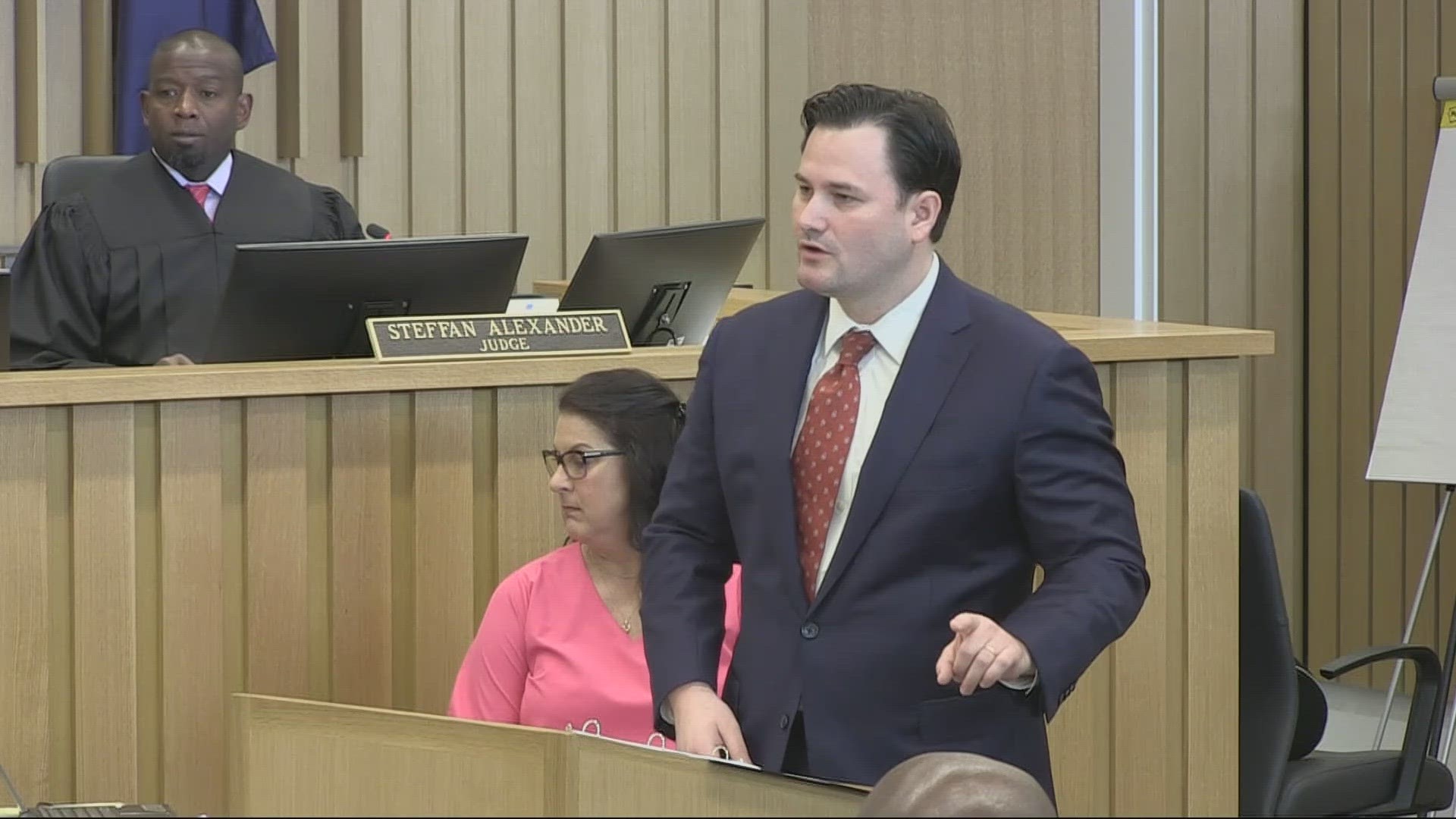PORTLAND, Ore. — The trial for a $1.6 billion class action lawsuit surrounding the 2020 Labor Day fires in Oregon started Tuesday in Multnomah County.
When the trial concludes, a jury will decide whether utility company Pacific Power, under its parent company PacifiCorp, is liable for the damage caused by four of the wildfires, ranging from the Santiam Canyon to Lincoln City and down into southern Oregon.
A group of 17 plaintiffs claim that Pacific Power caused fires by not turning off electricity in areas of extreme fire risk, despite multiple warnings of a strong wind storm.
However, Pacific Power argues that responsibility for the four wildfires listed in the lawsuit is complex — pointing to climate change, the spread of other wildfires and the risk of turning off power for affected communities.
The jury was selected on Monday and opening arguments started on Tuesday.
"PacifiCorp chose not to protect Oregonians — it did not live up to its obligation, it didn't take any action to prevent fires, and now, in this case, PacifiCorp should bear the consequences," said Nicholas Rosinia, attorney for the plaintiffs.
Pacific Power attorneys countered that a decision to de-energize power lines is complex and can't be based on fire risk alone.
"The possibility of an ignition must be weighed against the dangers of de-energization when whole cities and towns can be blanketed in darkness just when they need power the most," said Doug Dixon, an attorney for the defendants.
The attorneys recognized that both Portland General Electric and Consumers Power, Inc. decided to turn off power in parts of their service areas around the Labor Day storms.
However, Pacific Power attorneys said preventative power shut-offs were a new practice at the time and unique to certain areas and forecast data.
"No Oregon utility had ever initiated a public safety power shutoff prior to Labor Day 2020 — it is truly a measure of last resort," Dixon said.
In opening arguments, the plaintiffs' attorneys showed the jury photos of fire damage and played an audio clip of a woman calling in a fire in the Santiam Canyon area.
Rosinia alleged that Pacific Power didn't turn off recloser systems that would've cut electricity when a tree falls on a power line, leading to lines re-energizing and sparking fires.
"(Pacific Power) knows it can prevent a fire, it's an important (tool) for power companies, but there was no consideration," he said.
The defense pushed back, arguing that Pacific Power has been made the scapegoat of a historic confluence of events.
“Plaintiffs want to ignore a changing world and blame it all on my client, Pacific Power. Why? Because they view Pacific Power as an easy, convenient target," Dixon said. "But in trying to make this case simple and point the finger at one entity, they have left out critical context and facts and events, and without this context you cannot make an informed decision."
The group of plaintiffs includes people who lost their homes or property in the fire. More people impacted by these fires could receive compensation as part of the class action element of the lawsuit if the jury rules in favor of the plaintiffs.

